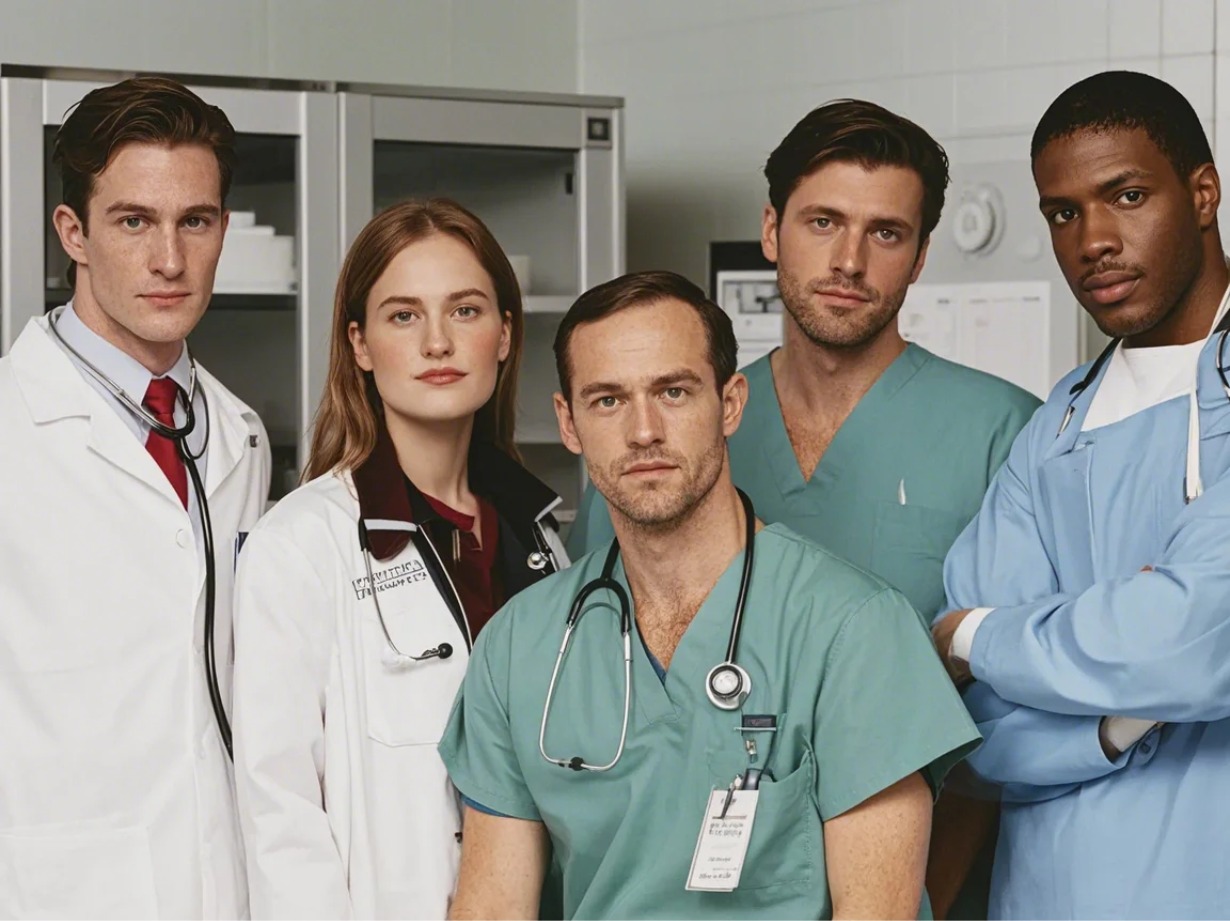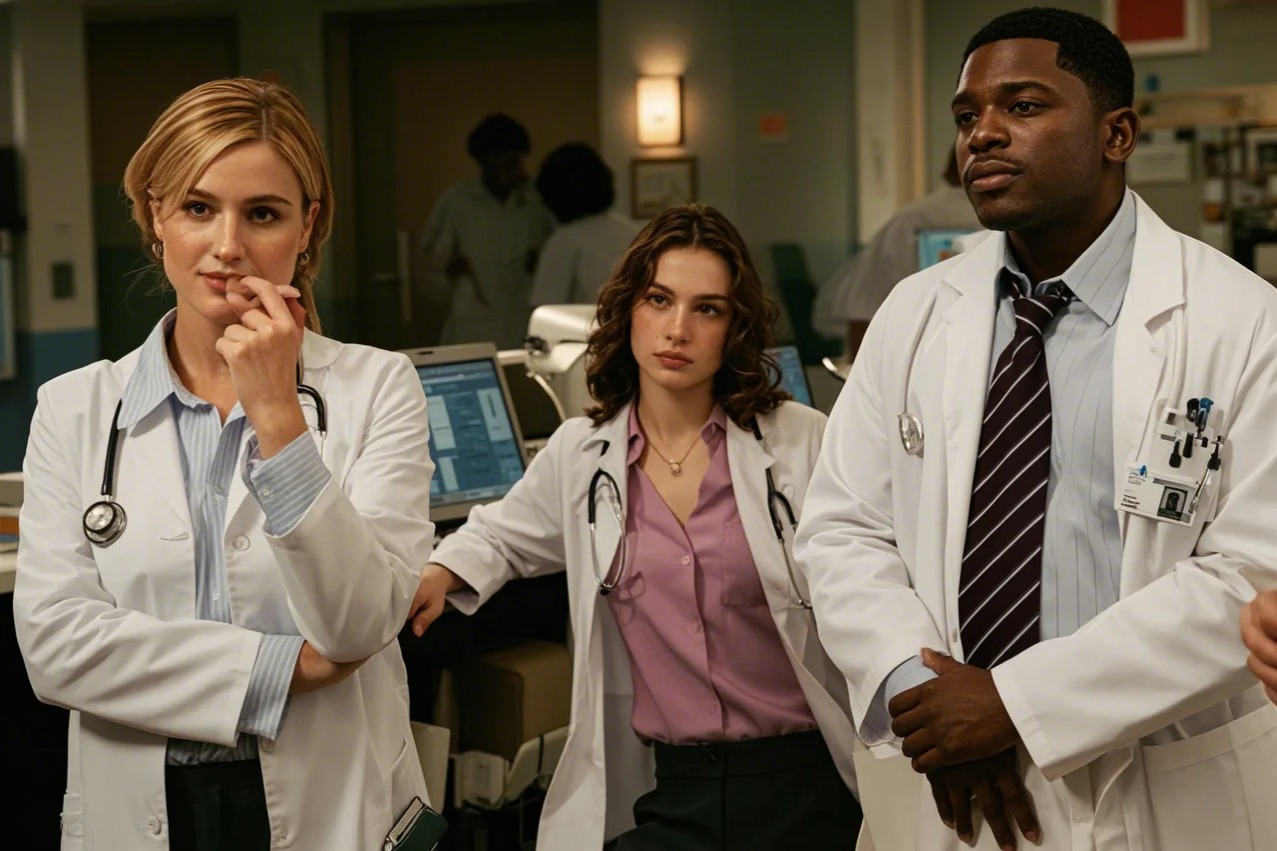ER (1994–2009): A Groundbreaking Medical Drama That Redefined Television
Few television series have left as indelible a mark on pop culture as ER, the long-running medical drama that aired on NBC from 1994 to 2009. Created by Michael Crichton, a physician-turned-novelist and filmmaker, ER captivated audiences with its compelling storytelling, innovative cinematography, and an unflinching look at the chaos of emergency medicine. Over its 15-season run, the show not only garnered critical acclaim but also redefined what a television drama could achieve, both narratively and technically.
A Realistic Portrayal of Emergency Medicine
Set in the fictional County General Hospital in Chicago, ER brought viewers into the fast-paced world of emergency medicine. The show was lauded for its authenticity, thanks to Crichton’s medical background and the meticulous research that informed the scripts. Complex medical jargon, rapid-fire dialogue, and intense emergency room procedures created an immersive experience, making viewers feel like they were part of the action.
The series didn’t shy away from the harsh realities faced by medical professionals, including burnout, ethical dilemmas, and the emotional toll of life-and-death decisions. It tackled issues like healthcare inequality, mental health, and the struggles of balancing a demanding career with personal relationships.

A Stellar Ensemble Cast
One of the defining features of ER was its ensemble cast, which introduced audiences to now-iconic characters and launched the careers of several actors. George Clooney’s portrayal of the charming yet troubled pediatrician Dr. Doug Ross catapulted him to superstardom. Julianna Margulies, as nurse Carol Hathaway, brought depth and resilience to a character initially written off in the pilot episode. Other standout performances came from Anthony Edwards as the compassionate Dr. Mark Greene, Noah Wyle as the earnest Dr. John Carter, and Eriq La Salle as the ambitious Dr. Peter Benton.
As the series progressed, the cast evolved, with new actors like Maura Tierney, Mekhi Phifer, and Linda Cardellini bringing fresh energy to the show. Despite the rotating cast, ER maintained its core focus on the human stories at the heart of medicine.

Innovative Storytelling and Direction
ER was groundbreaking in its approach to storytelling. It often employed real-time pacing, with episodes unfolding over a single shift in the emergency room. The show’s signature long takes and Steadicam shots added to the sense of urgency and realism, immersing viewers in the frenetic energy of the ER.
The series also took risks with its narrative structure, exploring non-linear storytelling, flashbacks, and experimental episodes. One of its most memorable episodes, “Ambush,” was broadcast live, a bold move that underscored the unpredictability of emergency medicine.
Cultural Impact and Legacy
Beyond its critical and commercial success, ER had a profound impact on popular culture and the television industry. It paved the way for other medical dramas like Grey’s Anatomy and House, influencing their storytelling techniques and character-driven narratives. The show’s portrayal of healthcare workers as flawed but deeply human individuals resonated with audiences and inspired many to pursue careers in medicine.
ER also tackled pressing social issues, using its platform to raise awareness about topics like HIV/AIDS, domestic violence, and war’s impact on healthcare systems. Its willingness to engage with these themes added depth to its storytelling and cemented its reputation as a socially conscious series.

Awards and Accolades
Over its 15-year run, ER earned 124 Emmy nominations, winning 23, including Outstanding Drama Series. It also received accolades from the Golden Globes, the Screen Actors Guild, and the Peabody Awards. These honors reflected the show’s excellence in acting, writing, and production.
Conclusion
ER remains a benchmark in television history, a series that combined gripping drama with a commitment to authenticity and innovation. Its legacy endures not only in the countless medical dramas it inspired but also in the hearts of the viewers who laughed, cried, and held their breath through its 331 episodes. Whether you’re a longtime fan or discovering it for the first time, ER is a testament to the power of storytelling and the enduring appeal of human resilience in the face of adversity.
